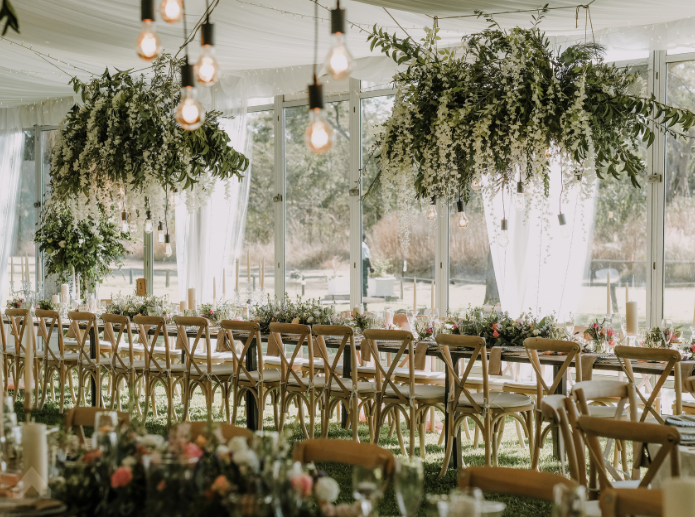866-296-3868
866-296-3868

How to Start a Table and Chair Rental Business: A Step-by-Step Guide for Success
The event rental industry is booming—and one of the easiest and most affordable ways to break into it is by starting a table and chair rental business. Whether it’s weddings, birthday parties, corporate events, or backyard barbecues, tables and chairs are always in demand. If you're thinking about launching a business that requires low overhead and high versatility, this could be your golden ticket.
Here’s everything you need to know to get started.
Before you buy a single folding chair, do some research in your local area. Are there lots of private events, outdoor venues, or party planners? Who are your competitors? What are they charging? You want to get a sense of the demand and price points. Look for gaps in service—maybe nobody’s catering to small events or weekday rentals.
Pro tip: Reach out to local venues, event planners, and caterers. Introduce yourself, ask about their needs, and see how your service could fit in.
You don’t need 500 chairs on Day 1. In fact, you can start with enough for 2–3 events and scale as you grow. A basic starter inventory might look like:
100 white plastic folding chairs
10 rectangular 6-ft tables
5 round 60" tables
Optional: Linens and chair covers
This setup is affordable, versatile, and can serve birthday parties, showers, and even casual weddings.
Choose commercial-grade products that are durable, lightweight, and stackable to make transport and storage easier.
Storage and transportation are key considerations. Even with a small inventory, you’ll need a secure place to store your equipment—like a garage, small warehouse, or storage unit.
You'll also need a reliable way to deliver. Many table and chair rental businesses use:
Cargo vans
Pickup trucks with trailers
Box trucks (for larger setups)
Make sure your delivery vehicle can handle the weight and volume of your inventory. Also, consider investing in carts and dollies to make loading and unloading easier.
Set clear pricing that reflects the value of your service while staying competitive in your market. Many businesses charge per item, such as:
You’ll also want to charge for delivery and pickup, especially if events are outside your service area.
Other important policies to define:
Damage fees
Setup/breakdown charges
Cancellation policy
Deposit requirements
Clear policies protect your business and help set customer expectations.
Even a small rental business needs strong branding. Come up with a name, logo, and tagline that reflects reliability and professionalism. Then, build a simple but effective website with:
Product photos and pricing
FAQ and policies
Contact form or booking tool
Testimonials and reviews
Don’t underestimate the power of Google My Business, Instagram, and Facebook to drive local traffic. Post your inventory in action at events, tag vendors, and share behind-the-scenes content to build credibility.
Once you're established, you can boost your revenue by offering extras such as:
Linen rentals
Canopies or tents
Lighting
Dance floors
Décor items (arches, table runners, centerpieces)
The more you become a one-stop shop, the more valuable you are to customers—and the higher your profit margins can be.
Your tables and chairs may not be glamorous, but your service should shine. Timely delivery, clear communication, clean inventory, and friendly professionalism go a long way.
Encourage every satisfied customer to leave you a review. Reputation is everything in this industry.
Starting a table and chair rental business doesn’t require a massive investment or special credentials—but it does require hard work, attention to detail, and a customer-first mindset.
Start small, deliver excellent service, and reinvest profits into expanding your inventory. Before you know it, you'll be handling multiple events every weekend and growing into full-scale party rentals.
With the right strategy and consistency, this simple business model can become a sustainable and highly profitable venture.
{"one"=>"Select 2 or 3 items to compare", "other"=>"{{ count }} of 3 items selected"}